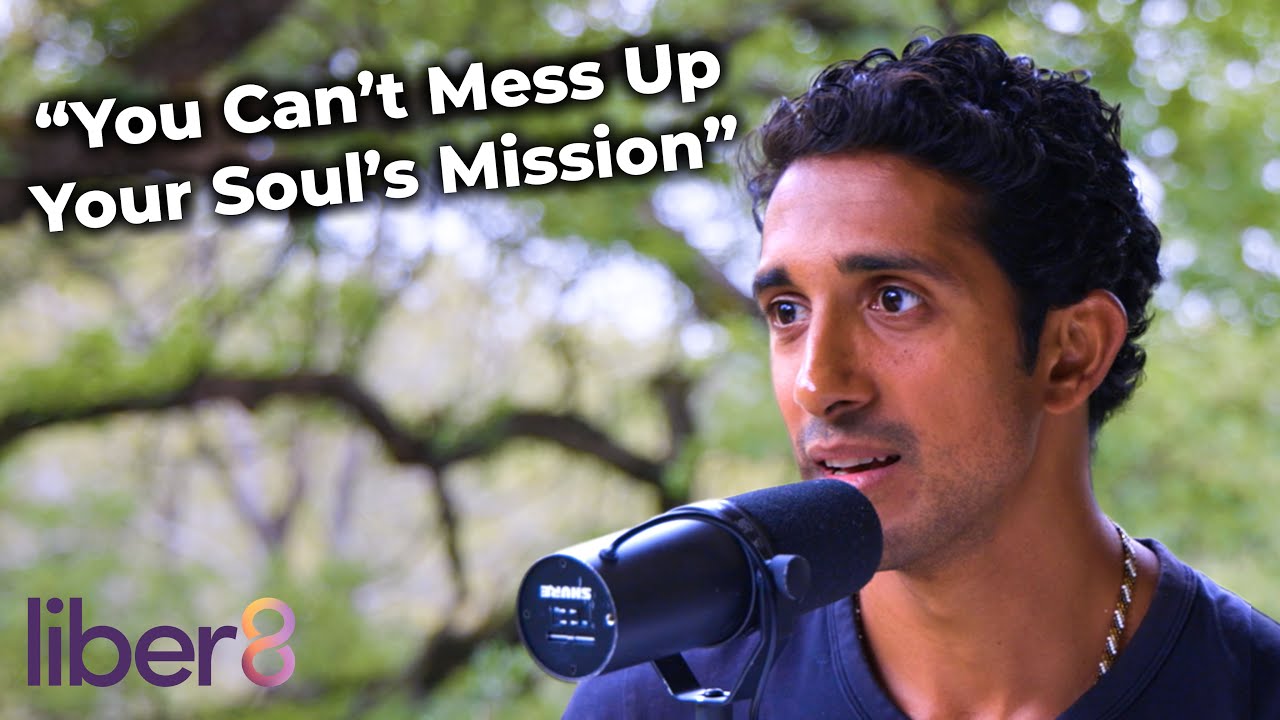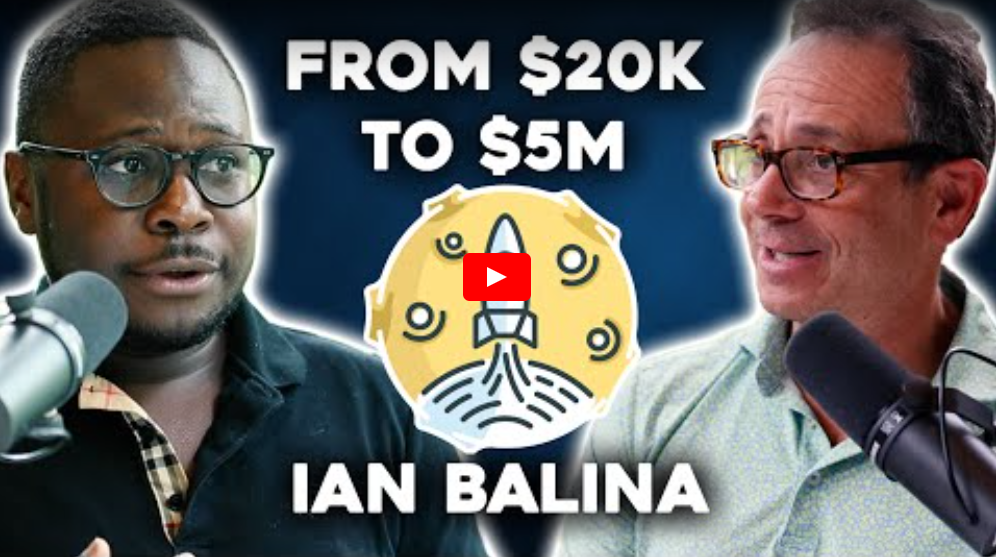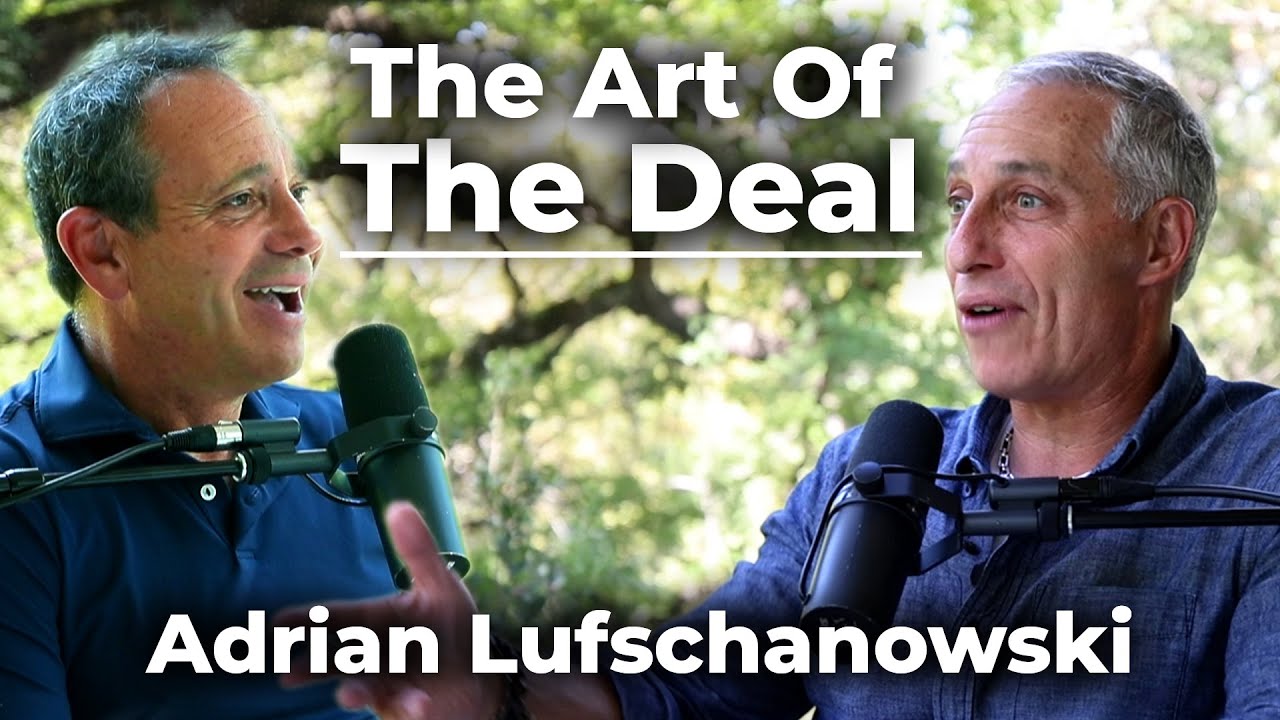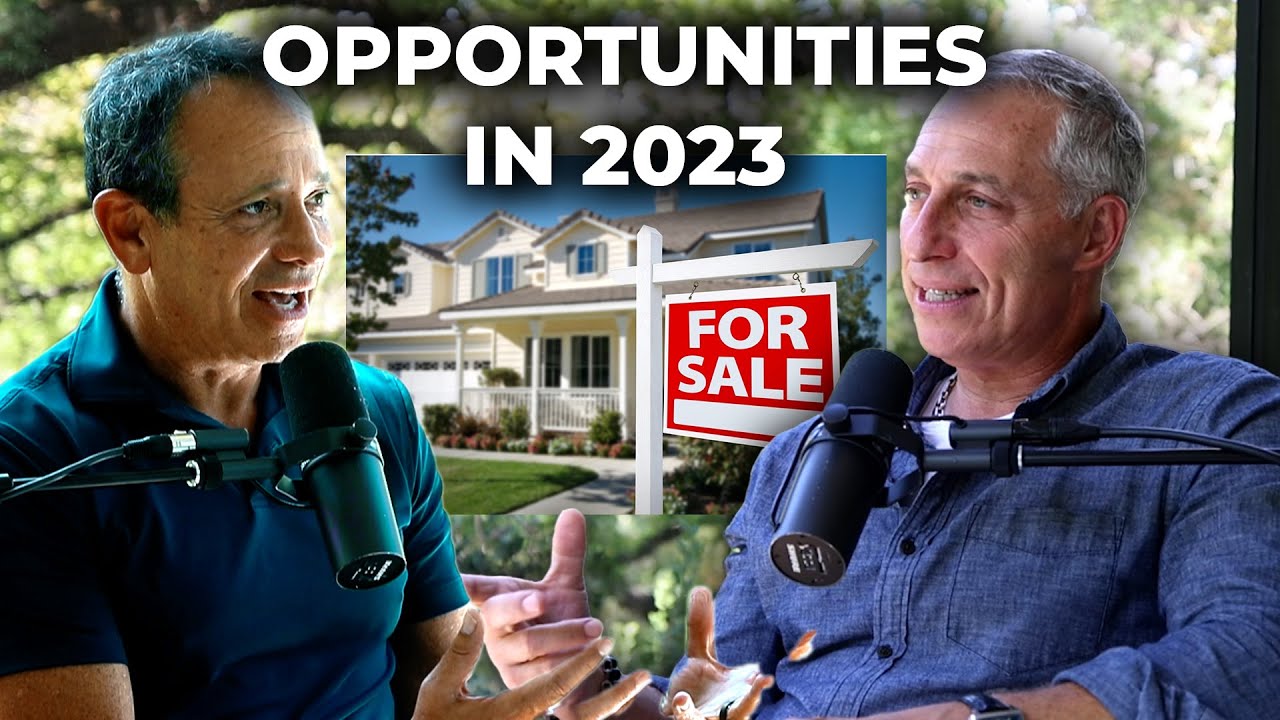Economic Predictions For The Next 18 Months | JP Newman and Ryan Daniel Moran
Listen on YouTube, Spotify, or on Apple Podcasts
In this episode of Investing On Purpose, JP and Ryan give an economic update and share what they believe is coming over the next few years in the economy. Ryan believes the worst of the recession is behind us, while JP is not so sure.
TRANSCRIPT
[00:00:00] JP: Hi, this is JP Newman of Investing On Purpose and today I’m with Ryan Moran to talk about exactly where are we in the economy right now at this moment. Ironically, I think Ryan and I have switched places. Usually I’m more the optimist and, uh, I’d say right now we have some headwinds and I’ll tell you why in the episode.
[00:00:17] JP: It’s a really short episode. I think you’ll find it intriguing and I’m going to give you a suggestion of something I think will be really helpful for you, um, to watch, uh, as well that I think will really change your thinking. Hope you enjoy the episode. If you do like and subscribe. Alright. So we’re gonna make this quick.
[00:00:33] Ryan: Okay. But we need to do an economic update. Okay. Because when we’ve done this in the past, I like, I’ve, we did an episode where I was like, jp, I’m pretty scared. Right. And can, and you were like, voice of reason, this happens all the time. Right, right. And, uh, then we did an episode where I, I kind of take a stance.
[00:00:51] Ryan: I feel like the worst is over. Right. I feel like markets didn’t bottom as low as I thought they were going to. We did disagree on how much the [00:01:00] real estate market was going to come down. I think I won that bet. It’s not over.
[00:01:07] Ryan: I thought we’d see a 25 percent pullback, which we’re around, at least in Austin. We’re, we’re about that. I don’t know what it is in another market, but you’ve kind of teased that maybe we’ve switched places a little bit that I’m like, I feel like things are a little bit stable. I’m kind of encouraged by there’s, I think there’s some really.
[00:01:26] Ryan: Attractive. Presidential candidates. I’m kind of hoping that maybe we get somebody that isn’t named Trump or Biden. I think that, uh, sentiment is still low, but it seems okay. So I’m more in like, okay, we’re in a stable place. I’m less scared. But when I said that to you, you made a face.
[00:01:45] JP: I did. And we switched places.
[00:01:48] JP: A little bit. Yeah. I mean, I, I still say like, you know, Uh, I think our last conversation, I said, let’s, the next 24 months is going to be rocky, but we don’t know how rocky it’s going to be. And remember, I don’t, we’re, I think we’re [00:02:00] six months into the 24 months. So, so it’s not that I totally changed my position.
[00:02:04] JP: I just think that I’m actually starting to see the crest of the waves. And right here’s where, here’s where I’m seeing it. A lot that’s concerning is that first of all, we still haven’t ripped the bandaid off of the fact that we printed 7 trillion. We still haven’t ripped that bandaid off of the money supply.
[00:02:18] Ryan: Well, so let me poke a hole in that because we’re destroying that now. The Fed is reducing its balance sheet and it raises interest rates and that money does get destroyed. We haven’t destroyed all of it, but we’re in a contraption period. So it’s not like that money’s
[00:02:31] JP: just floating around. But here’s my point.
[00:02:34] JP: And say we haven’t started, but we haven’t ripped the Band Aid. We’ve lifted the Band Aid. We can feel a little pull. We feel the
[00:02:40] Ryan: hair hurts
[00:02:42] JP: a little bit, but we haven’t ripped it. And I think that what you’re seeing, and you may not be seeing it, but I am seeing it, I’ve seen it in my apartments is that this inflation isn’t a small thing.
[00:02:51] JP: We’ve seen the interest rates, you know, they’re going to be high. They may not keep going sky high, but even now they’re. They’re high relative. They’re not high historically, they’re just high
[00:02:59] Ryan: [00:03:00] relative. And they’re high, they’re high relative to the price of assets. Right. If you were to buy a house right now, it’s still really, and the price has come down, but the monthly payments are absurd.
[00:03:11] Ryan: Right. So like one of those things has to break. Well,
[00:03:13] JP: that’s my, you just actually nailed my exact thesis. What I’m seeing, Ryan, across the board in my business, It’s not, everyone just keeps talking about interest rates, but my, my, my insurance has doubled. My property insurance has doubled. Yeah. My taxes have gone up.
[00:03:27] JP: My employee overhead has gone up by 20%. So right now I have a business in the real estate business that because of all these increased expenses, my, my revenue is not meeting my expenses. It’s upside down. So only, only two things can happen right now, right? Prices have to go down on the asset. Or expenses have to go down because an investor is not going to, an investor is looking for a risk adjusted return.
[00:03:52] JP: No investor is going to buy something that loses money every month, whether it’s, whether it’s sheer strength, or whether it’s an apartment building it’s the same fundamentals. No investor is [00:04:00] going to buy a, you know, or not, not for their, not for a high price. They may buy it at a discount and they think they can turn it around, but no one’s going to buy it for today’s prices.
[00:04:08] JP: So what I’m seeing right now, because right now, Ryan, I am. I’m selling five properties and I’m looking to buy them, found much to buy, made one offer. I’m lending money right now, so I’m really active in the marketplace. And here’s what’s interesting right now, um, buyers are trying to buy, so there’s capital and the prices, the market’s actually really efficient about, and you’re 25 percent in Austin’s about right, I’m 20, 25 percent and, but here’s what’s interesting.
[00:04:34] JP: So the market’s actually speaking really clearly. It’s very efficient at what values are today, but here’s what I’m finding. People can close. I’ve had four people come in about the same price on my deals and they can’t close because they can’t successfully raise their equity. So everyone thinks capital is that easy.
[00:04:50] JP: It’s there. It’s not really there. Now there, there’s a nervousness or an unsure that are we really at the bottom or not? I see. I can tell you, I don’t believe based on this in [00:05:00] my market right now that we’re at the bottom yet. I think there’s more. More pressure needs to go because still even at the new prices, at the new adjustment of the 20 to 25 percent discount revenue and expenses don’t make sense for an investor yet.
[00:05:13] JP: So one of those two things, again, expenses go down or prices continue to go down.
[00:05:17] Ryan: This, this, this makes total, total sense based on why you make that face to me when I feel like the worst is over, because I, I am seeing the squeeze too in businesses, the expenses are up, fees are up, and revenue is stable, maybe a little bit down.
[00:05:34] Ryan: There is a squeeze on P& Ls right now, but, but like the, but the. The very fast markets, like crypto, stocks, like things that are more liquid, I feel like that pain happened a while ago. Like it happened 6, 8, even 12 months ago and it was just such a boom. 30 percent correction, 50 percent correction, 80 percent correction in the crypto [00:06:00] markets, where I feel like that has now…
[00:06:03] Ryan: Flatlined or stabilized, but more conservative stable assets like businesses and real estate, they always come last. And we saw the price correction happen really fast. But what you’re saying is that there’s still like a P& L squeeze. The businesses are still So it’s all about having a hard time, and they’re probably going to have a hard time for quite some time.
[00:06:22] Ryan: And I do think that’s going to be the case for another 18 to 24
[00:06:24] JP: months. A lot of equities, just again, the P ratios of stocks, cap rates on real estate, they just were so like, they, and that’s probably healthy. This is the part where I get, you know, I said in my last clip, it’s like… This is capitalism. And this is market efficiency.
[00:06:38] JP: They probably have been overblown for a long time. There’s a great, there’s a great, um, documentary on YouTube called Easy Money. It just came out and it talks all about how, you know, having just too long of a period of easy money is, you know, one of the big reasons that bloated the value, all the values, because money was virtually almost free.
[00:06:57] JP: And so this is, that’s, to me, that’s [00:07:00] ripping the bandaid as money is no longer free. And by the way, Interest rates of 8 percent are great. Like historically, in real estate for the last 50 years, 7, 8 percent is a normal interest rate. It’s great with proper asset prices. There you go. That’s the ripping of the bandaid, right?
[00:07:16] JP: That’s what I’m talking about. So with normal prices, it’s healthy, we’re cleaning things up. It’s all going to go up, but there’s got to be some pain because the people who paid for their businesses, their stocks, their real estate. The prices that were from a year ago, it’s probably not the same value today.
[00:07:32] JP: And it’s interesting, right? I’m, I’m less on the equity side. So you’re right. I, I, I can’t say confidently with what you’re saying that maybe the worst of the price corrections have already happened in some of these more liquid assets. It’s really liquid assets. Yeah. So it’s possible the market is so efficient that it’s already priced that in.
[00:07:47] JP: I, I, I could see that as a possibility. I also do know that I believe that the middle class right now, the lower middle class, are being squeezed harder than ever. Harder than even the pandemic right now. Harder than the pandemic? Well, food [00:08:00] prices. Everything’s up. So your rent is up, your food is up, and so consumers, that money that they had when they got the check and a little more savings there’s still some money, but that’s quickly dwindling where people are going more and more to their credit cards.
[00:08:13] JP: So you’re going to have a lot of consumers squeezed. Everywhere. And so something has to, something has to break and
[00:08:20] Ryan: something has to get up. That makes sense to me because when you have a recessionary period, the one good thing that happens there is lower prices. Yeah. And we haven’t seen that. We have. We have.
[00:08:30] Ryan: I mean we’ve seen it in assets, but we haven’t seen it at the grocery store. We haven’t. We’ve seen just the
[00:08:35] JP: opposite. Yeah. We’ve seen the opposite. There’s something right now like in, in like a lot of like the, the um, the bread lines and a lot of the places where people are going for food and for shelter, that the pressure now on these nonprofits to provide food.
[00:08:46] JP: Is worse than it was during the pandemic that people now are squeezed and more desperate now than they were during Covid when there was no jobs and everything was locked up. Mm-Hmm. because, you know, they actually have a single mom who said, I usually could live on a hundred dollars a week on [00:09:00] food and now it’s 170 mm-Hmm.
[00:09:01] JP: So I’m, I’m using my a hundred, but then I gotta supplement and go to like the, you know, I gotta go to a, a food, you know, a nonprofit food place just to supplement to feed my kid.
[00:09:09] Ryan: Yeah. Does this approach how you manage. I mean, for us, it’s been, okay, we got to, we, we have to be really lean. We’ve got to be really protective over profit, which is just good business, but it becomes extra important right now.
[00:09:24] Ryan: And at the fund, it’s, you know what, we can’t, we, we can’t invest in businesses that aren’t profitable. Whereas we would be more, we’d have more of a risk tolerance for growth companies or early stage companies. And now it’s like, if you’re not profitable. You can’t feed our… Our people. And
so, and, and so, and that brings asset prices down too, because there’s less of an appetite for the high
[00:09:48] JP: risk thing.
[00:09:49] JP: I’ll say the same language. I have a part, uh, property. You didn’t walk, you did walk this one. It’s in Salt Lake City. Yeah, yeah. And we’re selling it right now.
[00:09:56] Ryan: You’re selling it right now. It feels like yesterday. I know. That we walked it
[00:09:59] JP: [00:10:00] together. And I’m selling it partly just because we made our return.
[00:10:02] JP: Even in this market, we’re going to make a reasonable return. I mean, it would have been a 70 percent return annually. Uh. A year ago, now it’s going to be like, if it sells, you got to make sure that actually 18%.
[00:10:13] Ryan: So it’s a lot less. Wow. That’s a big, that’s a big difference. But our
[00:10:15] JP: performance to the investors was about 16%.
[00:10:18] JP: So even though it would have been a home run, now it’s a single, but guess what? Investors get their money back with a return. Yeah. That, that feels really good right now. ’cause I do think that markets, again, it’s not doom and gloom. I just think that, that there has to still be an adjustment. So if I could take some risk off the table, return some capital to investors, that feels really good to me.
[00:10:37] JP: Yeah. So I said to my partner who you met, uh, you met Brennan. Mm-Hmm. . And I said to Brennan, I go, ’cause there’s still a bunch of units and it’s doing great, the building’s full. I said, can’t you sell the dream of like to the next buyer of like, there’s still half the units that need to be done. He said, JP.
[00:10:51] JP: You can no longer sell the dream. That was the last market. There is no selling the dream. He’s like the lenders, the banks, nobody, nobody’s looking at the dream. They’re just looking at [00:11:00] the numbers on the pages now, which is so different than the last 10 years. The language, the language of my business has been literally.
[00:11:08] JP: You know, fix up 10 percent or 20 percent of your business, apartments in this case, and sell the dream. Yeah. And then the bankers would bank the dream. Everybody, equity would, you know, everybody was into the dream. The dream was over.
[00:11:19] Ryan: Now, there were two things that you said has to happen. One of two things has to happen.
[00:11:23] Ryan: Prices come down, or what was the other one? Well,
[00:11:25] JP: expenses come down. Yeah. Because for it to adjust on the prices, either prices come down. Expenses come down, or you can say a combination
[00:11:33] Ryan: of both of them. Okay. So in either of those cases, you have some sort of a recessionary environment. We’ve already had the asset price recession.
[00:11:41] Ryan: Right. And so you either continue that trend, or the expenses have to come down, which looks like unemployment goes up. Like one of those two things has to break, is what you’re saying. Exactly. Yeah. You got it. I think we have about 18 to 24 months. Before [00:12:00] that’s fully shaken out, like from here, that’s
[00:12:02] JP: what I’m saying.
[00:12:03] JP: So that’s, that’s, that’s,
[00:12:04] Ryan: that’s my show. Now I, I, I’m a real estate investor as, you know, as a limited partner, right? I don’t, I don’t do what you do, but I invest in the stock market and I invest in, if you’re in the Bitcoin and I invest in businesses and my approach of this has been, I view this as an accumulation period as a retail investor.
[00:12:23] Ryan: Right. So when I see Bitcoin under 24, 000, under 25, 000, I’m like, is this. This is a good place for me to enter and be in for 10 years. I see PayPal come down to 80%. I’m like, it’s a good position for me to be in for the next 10 years. So I view the next two to three years as an accumulation period where I want to plant seeds, work like hell.
[00:12:45] Ryan: And wait, have a really long time horizon, but you’re active in the business. So the approach on your mindset must be a little bit different. I’ve
subdued as good news. Like I want to start new things. I want to buy a discount. Well, I’ve just,
[00:12:58] JP: I’ve just added, I’ve added [00:13:00] three new staff members in the last 90 days.
[00:13:01] JP: So I’m not, cause I’m actually. You know, the old saying, when it’s, when it’s, when things look the toughest is the time you kind of basically accumulate money. So like right now, Ryan, I’m working harder than I’ve worked in 10 years. It’s a really hard environment to raise money. Investors are nervous.
[00:13:15] JP: They’re scared, rightfully so. A lot of uncertainty. And this is the time that you have to accumulate investors, which is why I just hired three more people. I see. It’s not the time to buy, but it’s the time to be ready and you have to have your war chest ready to go. So I’m having a lot of fun. I mean, so in my mind, I have two mindsets right now, right?
[00:13:31] JP: Protect the mothership. Which is I still own apartment units. I still have a lot of assets I have to manage and do the best I can. And there’s some, there’s some real challenges now. I mean, prices are gone up. I can’t, I doubt that insurance is going to ever go down. I think we’re in a place of climate disaster after climate disaster.
[00:13:46] JP: Remember who pays for it? We do. And it gets packed into the rent. So every time there’s a climate disaster and you see Houston gets flooded, you’re paying that. The expenses are being, it’s not the insurance company. The insurance company is just passing on expenses to me and I’m like passing expenses on to you.
[00:13:59] JP: [00:14:00] So, so, so think about this, that, I mean, so. Insurances, a lot of expenses may just never go down. Their interest rates probably won’t go down to where they were at. But there’ll be some kind of stasis. But to answer your, like, I’m investing just like you. I’m actually buying crypto. I’m doing three investments this week that I still believe in, so I’m not hiding
[00:14:19] Ryan: from the hills.
[00:14:20] Ryan: I’m glad to hear you say all of that, because oftentimes, if this, this, this scared feeling, the anxiety in the market can keep people on the sidelines. And so they wait until things are good in order to jump in, and it’s
just, it’s, there’s just never a perfect time. There’s never a perfect time. There’s one wild card though, JP.
[00:14:39] Ryan: What’s that? And it will be the, does AI and technology create deflation and make things cheaper, faster, smoother over the next couple of years? Mm hmm. Which will still have a very rocky period, right? Right. I guess that will… Puts people out of [00:15:00] jobs. It will be a change in a lot of marketplaces, but that could drive down the costs of things in industries that we can’t even foresee right now.
[00:15:10] Ryan: I like to bet on that. I think that’s an optimistic view. I think that when you have technology that make things more efficient and that brings costs down, that is a. Net, net, that’s a good thing. There’s one, that’s the one wild card that I’m like,
[00:15:24] JP: So I love that wild card and you know I’m an optimist, but here’s the thing, I get it, I really, this documentary, Easy Money, just watch it.
[00:15:31] JP: But, but the thing you have to be careful with is, because I agree that sounds great, but what’s happening right now with inflation, it’s become an excuse for a lot of companies, Fortune 500 companies, just to charge more and they’re actually making, Dickinsonivity. com discussed those in detail. If you want to get into more detail about our business, go to www.
[00:15:55] JP: dickinsonivity. com and click on following. Policy. And this is kind of what the things of policy [00:16:00] between the Fed, Wall Street, the relationship between Congress, the Fed, the executive game, maybe a little too cozy where
[00:16:07] Ryan: you think that even now, I mean, I think Powell has pretty much given his finger to the market.
[00:16:12] Ryan: I mean, I, I think watch the doc, watch the documentary. Okay. I will. I mean, look, look at my backgrounds, Austrian economics. So of course I. I tend to agree with, with what you are saying in terms of low interest rates, artificially inflating asset prices. But it does seem like in this, in this cycle right now, Powell was like, yeah, we’re gonna bring prices down.
[00:16:30] JP: Yeah. But, but it was, yes. And he tried to do it five years ago and Wall Street told him no. Fair enough. And the president told him no. And that would have been the time to do it, but it could have been a lot less painful. That, that I completely agree with. The ban didn’t have to be so, so painful. So, I mean, I, just to end, it’s like, I think that.
[00:16:45] JP: We live in such an amazing country, and I both agree. America is just, I mean, there’s nowhere else I want to live. I don’t make any crazy statements, but it is so important that we make sure that, and this is where I think government has to do its best, and it’s a really hard time to try to [00:17:00] create a play field where entrepreneurs that are successful absolutely should.
[00:17:04] JP: Reap the rewards, but just not on the backs. You don’t want to gamify a system. JP, you’re giving me a heart attack, man. Sorry. You just want to gamify the system where you don’t give most of the people a chance to live a good life. That’s always been the American dream.
[00:17:17] Ryan: I mean, we said we were going to make this quick, but I mean, to me that just means get the hell out of our way.
[00:17:23] Ryan: Just, just don’t give special breaks to anybody, don’t put special rules on anybody, and we’ll all just let the marketplace figure it out.
[00:17:30] JP: Which I, I, I love it, but that’s not what’s happening. Because
[00:17:34] Ryan: you see, your, your interpretation is that there’s special rules for
[00:17:36] JP: special people. There are. Yeah. I mean, there are.
[00:17:38] JP: And, and, and, and there are, and um, anyway, so I don’t, that’s a whole other political rabbit hole. But the real thing is, what we really, you know, what you really want from a healthy thing is that everybody at their level can, can, it feels like they have a relatively I don’t, I don’t think it’s, it shouldn’t be a giveaway, which some people, you know, on the one side and you don’t want it to be so gamified that, that it’s the same people who just, cause your point about AI, [00:18:00] AI can totally do that.
[00:18:01] JP: I think AI can deliver that promise of cheaper cost of goods sold, less work, maybe four day work weeks, you know, are already becoming the new norm. And I think that’s all amazing for humanity. It’s just the question is how will it get, how will those extra. Energy dollars of ease. How will they get distributed to human beings?
[00:18:18] JP: Well, that’s a question. Well,
[00:18:19] Ryan: we’ll find out over the next 18 to 24 months. All right. That’s a wrap. Hi, this is a JP.
[00:18:27] JP: I hope you enjoyed the episode we just did here with Ryan. Some things to think about. I think the biggest thing to remember is there’s always opportunity in every cycle of the market. If you liked this episode, please like, subscribe, and remember, we’re all over on Instagram, TikTok, YouTube, at Investing On Purpose.
[00:18:45] JP: Thanks for listening.





